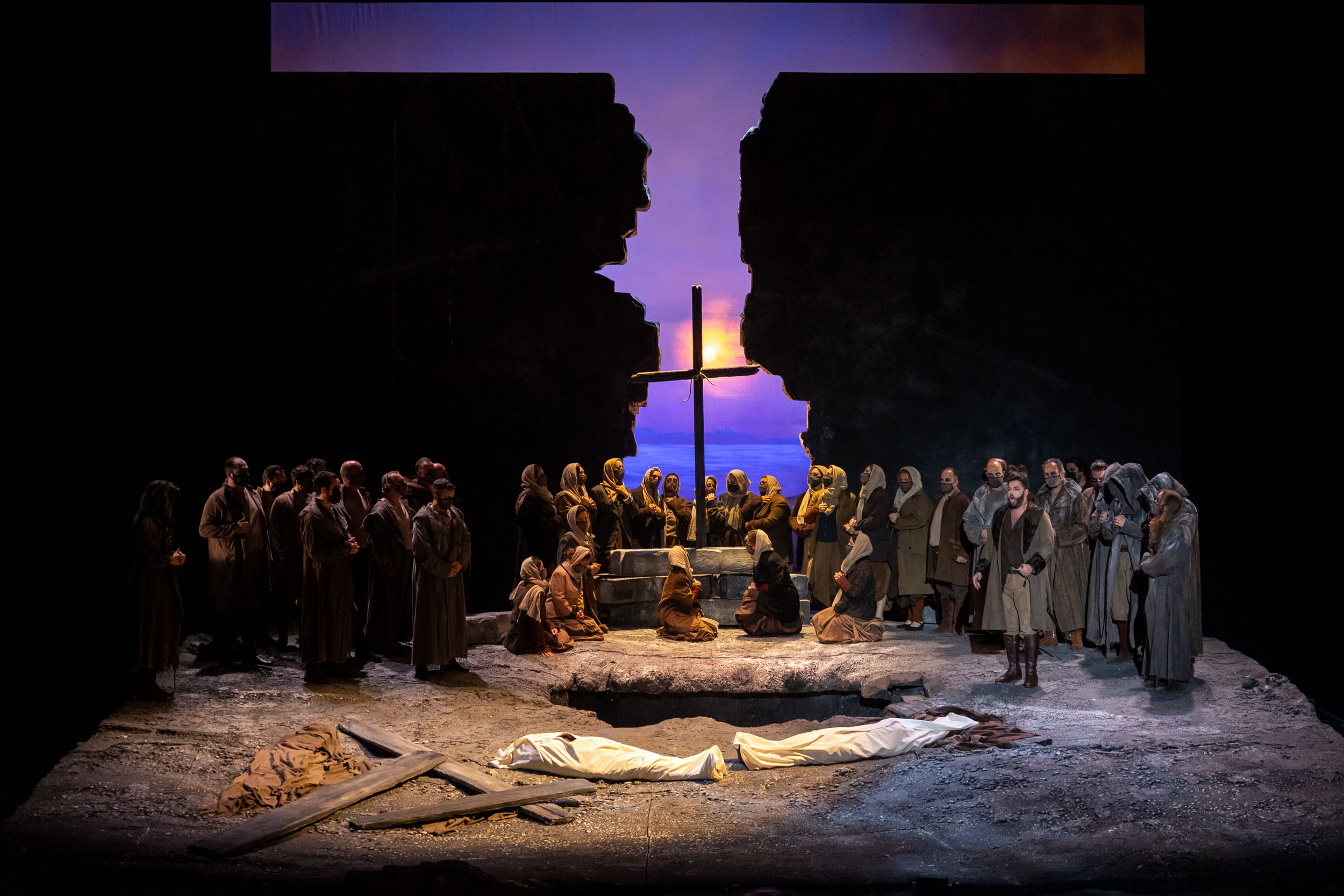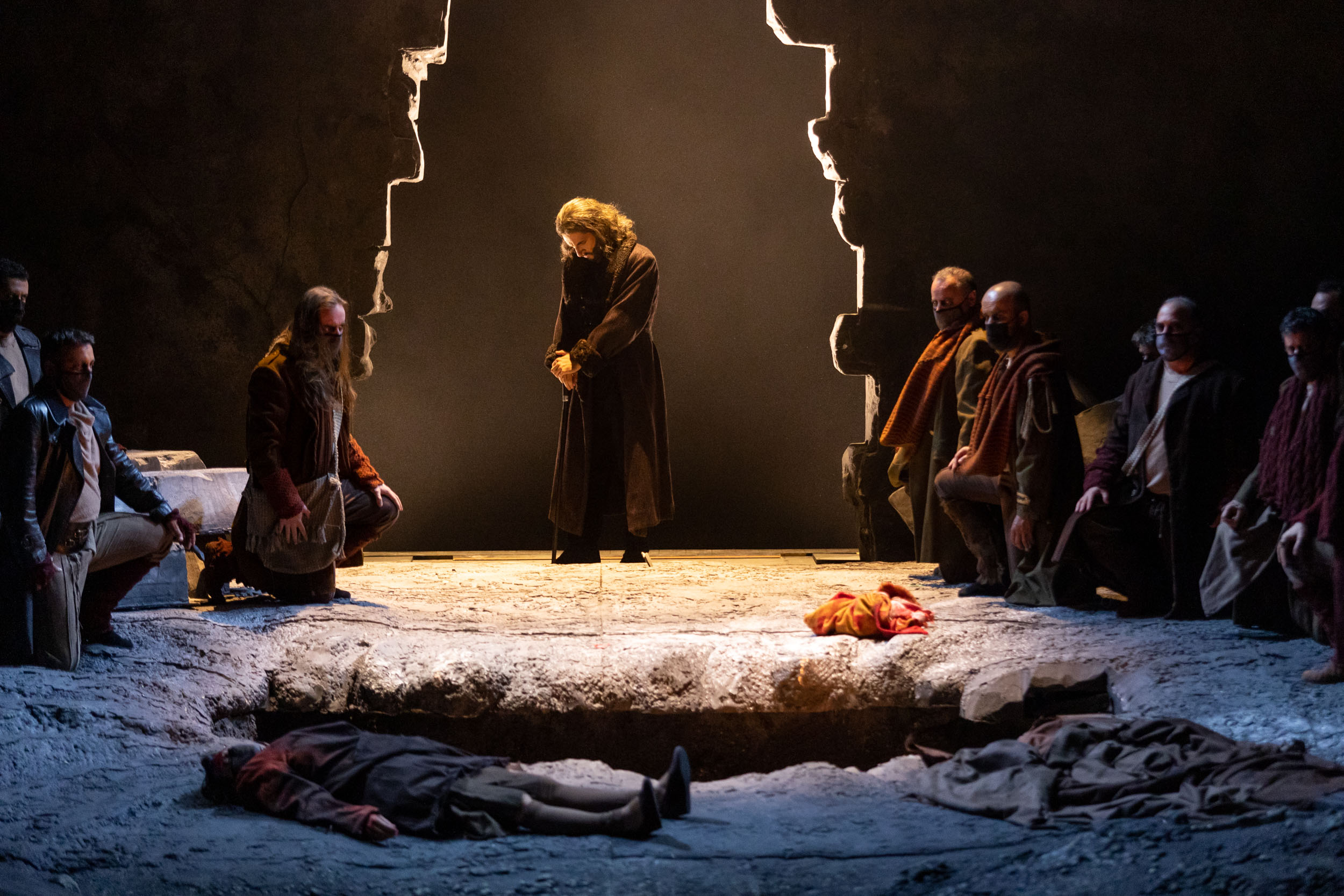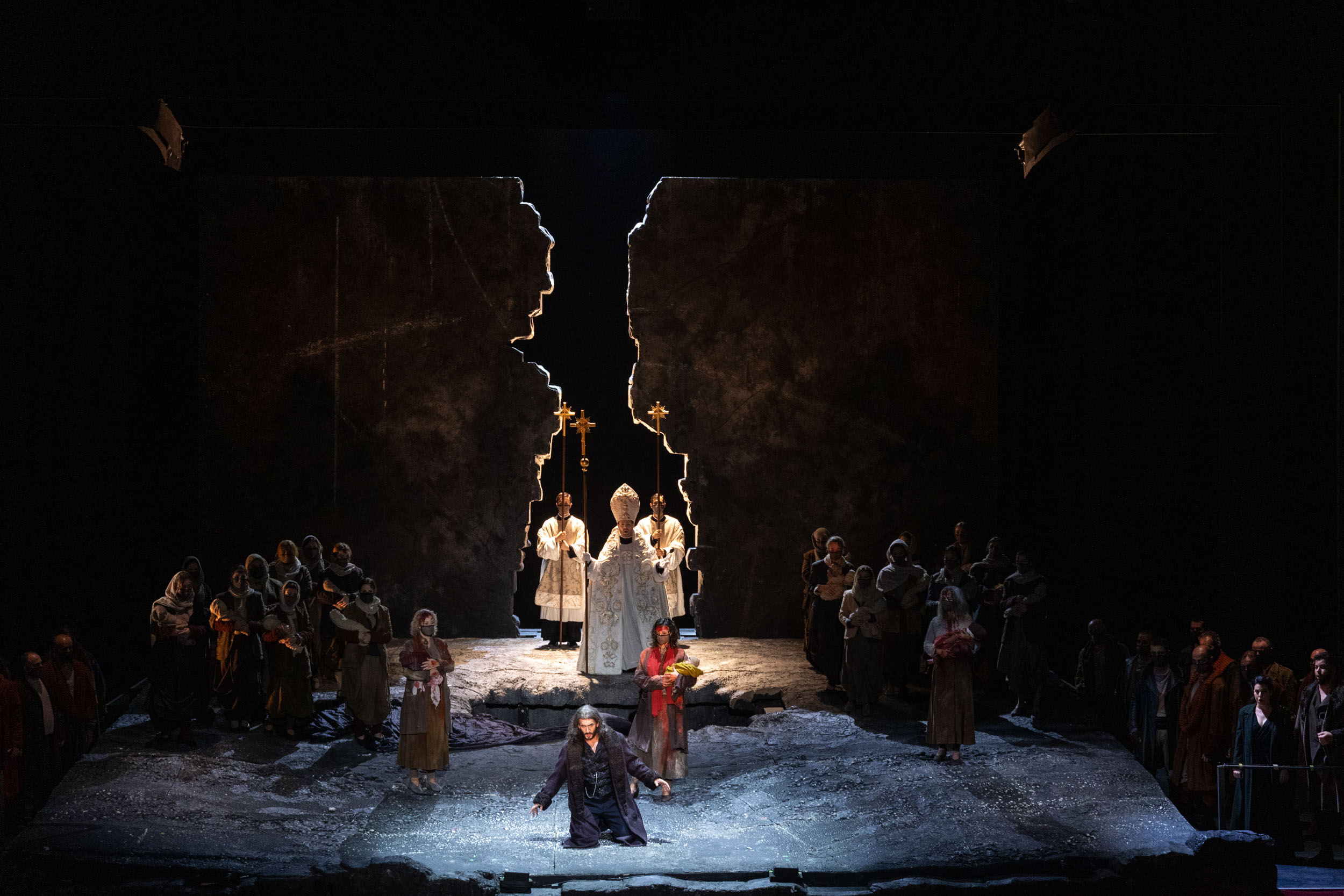War, betrayal and ghosts come together to present 'Attila' in the Auditorio de Tenerife

The first of three performances of Verdi's opera comes out tomorrow with the Croatian Marko Mimica as the ruthless king of the Huns
The Auditorio de Tenerife presents Attila, the second opera programmed for this season by Opera de Tenerife. War, betrayal and ghosts come together in this patriotic version of the king of the Huns composed by Guiseppe Verdi. The first performance of this production takes place tomorrow [Tuesday 23] at 7:30 p.m. in the Symphony Hall. The other two performances take place on Thursday and Saturday this week. Attila is a coproduction between the Auditorio de Tenerife with Teatro Regio di Parma.
This ninth opera by Verdi with a libretto by Temistocle Solera has three acts preceded by a prologue. Premièred during the mid-19th-century, this proposal presents the history of Attila, king of the Huns, and his relationship with Odabella. The staging moves away from the traditional features of this title but retains the spirit of Verdi's work.

Andrea de Rosa is responsible for the stage direction and set design. His team is rounded up with Alessandro Lai, costume designer, and Pasquale Mari, lighting designer. Christopher Franklin is the conductor and will be at the helm of the Tenerife Symphony Orchestra.
The Croatian bass, Marko Mimica, will play the main character while the Bulgarian soprano, Tanya Ivanova, will play the maiden Odabella. Alfredo Daza, baritone, will play Ezio; Antonio Poli, tenor, will play Foresto; Rocco Cavaluzzi, bass, will play Leone and Javier Palacios, tenor, will play Uldino. Their voices sing together with the choir Coro de Opera de Tenerife.
The origin of Attila is the play 'Attila, König der Hunnen' (Attila, King of the Huns) by the German Zacharias Werner, which Verdi had read after finding references to it in Madame de Staël's essay ‘De l'Allemagne’.Moreover, he had been stimulated by the suggestion to write on a "barbaric" topic. The story takes place in Italy in the year 425. The events narrated in the prologue take place in Aquileia and the Adriatic Lagoon, where Venice was built later on. The three acts happen in Rome.
The opera starts during the invasion of Italy by the Huns. Attila has conquered the city of Aquileia and killed his lord, but not his daughter: Odabella. While she is imprisoned, she swears to avenge her father's death by killing the king of the Huns. Attila is attracted to her by the strength of her character and woos her. She gives him consent to facilitate her plans. Foresto, a nobleman from Aquileia in love with Odabella, appears on the scene.
Attila is disturbed. He has dreamed that an old man prevented him from conquering Rome and warned him: “You might be the Scourge of God, but these are God's domains”. Even so, he orders to advance on Rome. The Pope Leo I comes to the fore and speaks to him in those very words.
 Attila recognises in him the man of his dreams, so he prostrates himself before the divine representative and renounces to take over the city. The opera continues with subplots of betrayal against the king of the Huns. The play will end in tragedy despite Attila’s acts of kindness.
Attila recognises in him the man of his dreams, so he prostrates himself before the divine representative and renounces to take over the city. The opera continues with subplots of betrayal against the king of the Huns. The play will end in tragedy despite Attila’s acts of kindness.
This opera is organised by the Department of Culture of Tenerife Island Council and managed by its island Minister of Culture, Enrique Arriaga, through the Auditorio de Tenerife. The tickets can be purchased until one hour before the show on the website www.auditoriodetenerife.com and by dialling the phone number 902 317 327 from Monday to Friday from 10:00 a.m. to 5:00 p.m. Saturdays from 10:00 a.m. to 2:00 p.m. Special prices are available for large families, unemployed, young people under the age of 30 and ticket holders of Opera de Tenerife for the season 19-20. The audience is requested to arrive at the venue well in advance to enter the Auditorium in staggered "waves".
By purchasing tickets, you accept the measures implemented by the cultural centre of Tenerife Island Council to combat COVID-19, such as the correct use of masks and attendance at the event only with people you live with. All of the measures, as well as the contingency plan certified by AENOR, can be consulted on our website.


